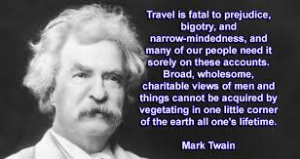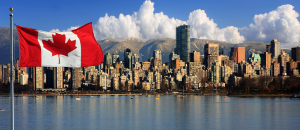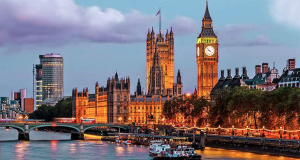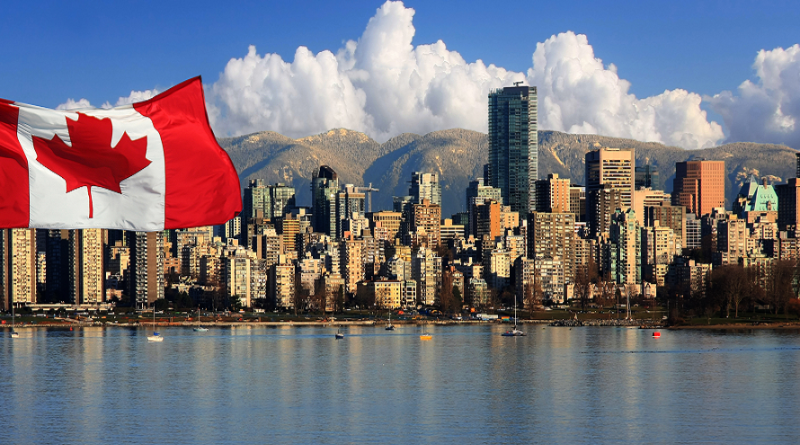As our work becomes increasingly interconnected in terms…
Westwards
As our work becomes increasingly interconnected in terms of a shared global economy and future, more people are hoping to explore new countries and the opportunities they offer. This has led to a growing wave of people wanting to move abroad to enjoy life experiences, a trend that will most likely resume once this current global situation has been resolved.
For Indians, particularly those aged between 18 and 30, the lure of Canada and UK has proven increasingly attractive. With their dynamic service based economies and internationally renowned pedigree for exceptional university level education, both countries are truly enticing prospects for short term (3-5 years) stays based work or study.
Feeling the Pull
What has gotten people up and moving globally?
• Seizing opportunities to study
• Pursuing offers in the global jobs market
• Exploring new cultures and lifestyles
• Learning new languages
• Self improvement and discovery
What does international study have to offer?
90% are able to communicate and collaborate with people from different cultures and backgrounds.
84% have already filled a mid-level or higher position in their field of work, with 26% reaching senior and 20% executive status.
70% felt they could work more effectively as part of a team.
84% improved their ability to adapt in a diverse workplace.
How could working abroad help your future goals?
60% of employers cite a favourable view of international work experience in prospective employees.
Working abroad exposes you to new skills and professional disciplines not readily available at home. India currently faces a talent shortage of 63%.
This talent gap is now ranked as top emerging risk faced by businesses worldwide.
Working internationally develops your cultural intelligence (CQ), an asset described as “critical to the financial success of any company with international aspirations.

What could you expect?
What’s getting people up and moving globally?
Factor
Climate & Weather:


Mild climate with warm summers. Frequently rainy.
Cuisine:
Exciting mix of traditional French and British cuisine, augmented by European, Asian and Caribbean immigration.UK:
True melting pot of international flavours and influences.
Sought-after cities to live/work/study:
Canada:
Vancouver, Toronto, Calgary,Montreal, Ottawa.
UK:
London, Edinburgh, Birmingham, Manchester, York, Oxford, Cambridge.
Established and emerging travel hotspots:
Canada:
Niagara Falls, Banff National Park, Old Quebec, Whistler, Churchill (Manitoba)
UK:
Stratford-Upon-Avon, Windsor, Scottish Highlands, Lake District, Cornwall.
Average cost of living (in rupees):
Canada:
Accommodation rent:
45K-55-K per month
Food:
15K-20K per month
Internet access:
2K-8K per month
Public transportation:
5K-10K (varies depending on city/zone)
Minimum wage:
600- 800 per hour depending on province
UK:
Accommodation rent:
55K-85K per month( varies significantly between regions)
Food:
15K-25 per month
Internet access:
2K per month
Public transportation:
6.5K – 12K (depending on transport method rcity/zone)
Minimum wage:
760 per hour depending on province
Some key pointers for future preparations
Get your finances in order:
Even if the planned move is some way off, it’s important to think carefully about the realistic living costs you are likely to face and work out a reasonable budget to sustain you throughout your stay. If you are studying, start thinking about whether you will need a part- time job for some ready cash.
To successfully manage your finances in either the UK or Canada you will need a bank account local to that country. This is also necessary for receiving wages, arranging accommodation and a number of other necessary personal admin tasks. It’s possible to get ahead of the game, as banks as HSBC offers services that allow you to initiate overseas account opening even before leaving India.
Seek out a suitable housing solution:
It may be too early to think about specifics, but it’s best to get a general outline of where you want to live in your short stay country of choice. Although rental accommodation won’t be hard to find in cities and big university towns, you will need to plan ahead and find something that suits both intended lifestyle as well as your budget. When time comes for negotiating a rental contract, always check the extent of your responsibilities regarding utility bills, smoking, pets and so on, to avoid any nasty surprises later. Remember that reputable universities and companies taking on international students/employees should be able offer plenty of guidance and support in this area.
Get smart about tax:
As part of your budgetary considerations, familiarise yourself with the basic tax considerations that may apply to you during your stay. For example, Canada’s basic income tax is 15%, while the UK’s is 20% (after your personal allowance of £12,500). Make sure you are aware of any tax exemptions that may apply to you as well. For example, in the UK all students are exempt from paying council tax.
Consider healthcare options: Nothing is more valuable than your health as the current global circumstances clearly demonstrate. It pays to be informed and prepared when planning to move to an unfamiliar country. Both Canada and UK operate universal healthcare system for their citizens and while expatriates are not eligible for coverage in Canada, there are avenues for utilising the UK’s NHS for those with eligible visas. In any case, it’s essential to be aware of your private health insurance options, which may be offered by your employer.


